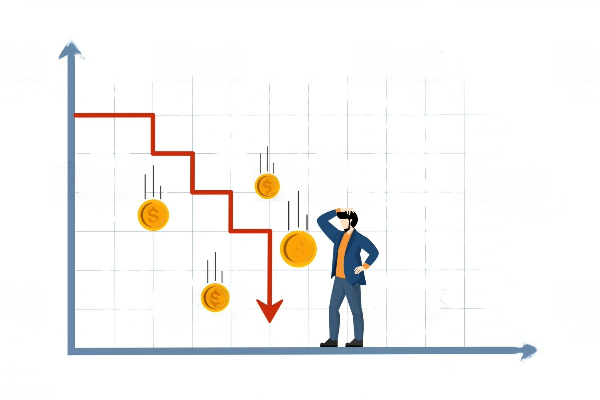In recent years, the concept of the green economy has gained significant traction as the world grapples with the urgent need to address climate change, resource depletion, and environmental degradation. The green economy represents a shift towards sustainable practices that prioritize environmental health, social equity, and economic growth. For businesses, this transition presents both opportunities and challenges that require careful navigation. In this write-up, I will explore what the green economy means for businesses, the opportunities it offers, and the challenges that must be overcome to thrive in this new economic paradigm.
What is the Green Economy?
The green economy is an economic system that seeks to mitigate environmental dangers and ecological scarcity while encouraging long-term development. It encompasses a wide range of sectors, including renewable energy, sustainable agriculture, green building, waste management, and eco-friendly transportation. The goal is to create a low-carbon, resource-efficient, and socially inclusive economy that benefits both people and the planet.
The green economy is not just about environmental sustainability; it also emphasizes social equity and economic viability. It seeks to create jobs, reduce poverty, and improve the quality of life for all, while ensuring that natural resources are used responsibly and efficiently. For businesses, this means adopting practices that minimize environmental impact, promote social responsibility, and contribute to long-term economic growth.
Opportunities for Businesses in the Green Economy
Access to New Markets and Customers
As consumers become more environmentally conscious, there is a growing demand for sustainable products and services. Businesses that embrace the green economy can tap into this expanding market and attract customers who prioritize sustainability. From eco-friendly packaging to energy-efficient appliances, companies that offer green alternatives can differentiate themselves from competitors and build brand loyalty.
Moreover, governments around the world are implementing policies and regulations that encourage sustainable practices. Businesses that align with these policies can gain access to new markets and benefit from incentives such as tax breaks, grants, and subsidies. For example, companies that invest in renewable energy projects may qualify for government incentives that reduce the cost of implementation.
Cost Savings through Resource Efficiency
One of the key principles of the green economy is resource efficiency, which involves using fewer resources to produce the same or greater output. By adopting energy-efficient technologies, reducing waste, and optimizing supply chains, businesses can significantly lower their operational costs. For instance, companies that invest in energy-efficient lighting, heating, and cooling systems can reduce their energy bills and improve their bottom line.
Additionally, businesses that implement waste reduction and recycling programs can save money on raw materials and waste disposal. By reusing and recycling materials, companies can reduce their reliance on virgin resources and minimize their environmental footprint. These cost savings can be reinvested into other areas of the business, such as research and development or employee training.
Enhanced Brand Reputation and Corporate Social Responsibility
In today’s competitive business environment, corporate social responsibility (CSR) is more important than ever. Consumers, investors, and other stakeholders are increasingly holding companies accountable for their environmental and social impact. Businesses that demonstrate a commitment to sustainability can enhance their brand reputation and build trust with stakeholders.
By adopting green practices, companies can position themselves as leaders in sustainability and attract socially conscious investors. This can lead to increased access to capital and improved financial performance. Furthermore, businesses that prioritize CSR are more likely to attract and retain top talent, as employees increasingly seek out employers that align with their values.
Innovation and Competitive Advantage
The green economy is driving innovation across industries, creating opportunities for businesses to develop new products, services, and business models. Companies that invest in research and development of sustainable technologies can gain a competitive advantage and stay ahead of the curve. For example, the rise of electric vehicles (EVs) has spurred innovation in battery technology, charging infrastructure, and renewable energy integration.
Innovation in the green economy is not limited to technology; it also includes new approaches to business operations, such as circular economy models that prioritize reuse and recycling. By embracing these innovative practices, businesses can reduce their environmental impact, improve efficiency, and create new revenue streams.
Challenges for Businesses in the Green Economy
High Initial Costs and Financial Barriers
While the green economy offers long-term cost savings, the initial investment required to adopt sustainable practices can be a significant barrier for many businesses. For example, transitioning to renewable energy sources or upgrading to energy-efficient equipment often requires substantial upfront capital. Small and medium-sized enterprises (SMEs) may find it particularly challenging to secure the necessary funding.
To overcome this challenge, businesses can explore financing options such as green loans, grants, and public-private partnerships. Governments and financial institutions are increasingly offering financial support for green initiatives, making it easier for businesses to access the capital they need. Additionally, businesses can take a phased approach to sustainability, starting with smaller, more manageable projects that deliver quick wins and generate savings that can be reinvested into larger initiatives.
Regulatory Complexity and Compliance
The green economy is characterized by a rapidly evolving regulatory landscape, with governments around the world introducing new policies and standards to promote sustainability. While these regulations are essential for driving the transition to a green economy, they can also create complexity and uncertainty for businesses.
Navigating the regulatory environment requires businesses to stay informed about changes in legislation and ensure compliance with new requirements. This can be particularly challenging for companies operating in multiple jurisdictions, where regulations may vary significantly. To address this challenge, businesses can invest in legal and regulatory expertise, engage with industry associations, and participate in policy discussions to stay ahead of regulatory changes.
Supply Chain and Operational Challenges
Transitioning to a green economy often requires businesses to rethink their supply chains and operational processes. This can involve sourcing sustainable materials, reducing waste, and minimizing carbon emissions throughout the supply chain. However, achieving these goals can be complex, particularly for businesses with global supply chains that involve multiple suppliers and partners.
To overcome supply chain challenges, businesses can collaborate with suppliers to promote sustainable practices and ensure transparency. This may involve conducting audits, setting sustainability criteria for suppliers, and working together to identify opportunities for improvement. Additionally, businesses can leverage technology, such as blockchain, to track and verify the sustainability of their supply chains.
Consumer Awareness and Education
While consumer demand for sustainable products and services is growing, there is still a need for greater awareness and education about the benefits of the green economy. Some consumers may be hesitant to adopt green products due to misconceptions about cost, quality, or performance. Businesses must therefore invest in marketing and education efforts to communicate the value of their sustainable offerings.
To address this challenge, businesses can focus on transparency and provide clear information about the environmental and social benefits of their products. This can include labeling, certifications, and storytelling that highlight the positive impact of sustainable practices. Additionally, businesses can engage with consumers through social media, events, and other channels to build trust and foster a sense of shared responsibility.
The green economy represents a transformative shift in the way businesses operate, offering both opportunities and challenges. By embracing sustainability, businesses can access new markets, reduce costs, enhance their brand reputation, and drive innovation. However, the transition to a green economy also requires overcoming financial, regulatory, operational, and consumer-related challenges.
To succeed in the green economy, businesses must adopt a proactive and strategic approach to sustainability. This involves investing in sustainable practices, staying informed about regulatory changes, collaborating with stakeholders, and educating consumers. By doing so, businesses can not only contribute to a more sustainable future but also position themselves for long-term success in an increasingly green world.
As the green economy continues to evolve, businesses that prioritize sustainability will be well-positioned to thrive in this new economic paradigm. The journey towards a green economy may be challenging, but the rewards—both for businesses and the planet—are well worth the effort.

